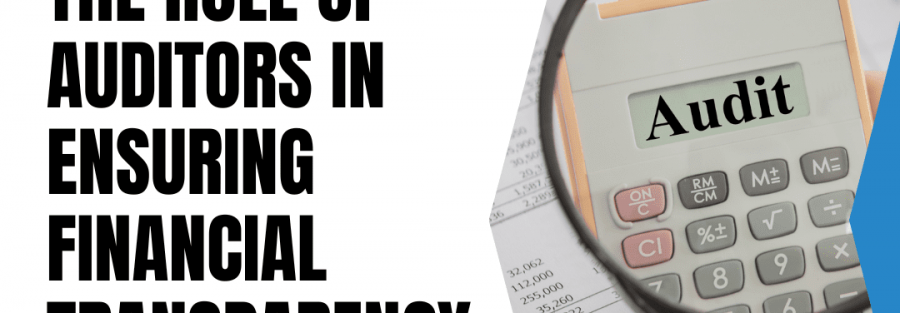Financial transparency is crucial for the trust and confidence of stakeholders in an organization’s financial information. Auditors play a vital role in ensuring financial transparency by independently examining and verifying the accuracy, completeness, and fairness of financial statements. In this article, we will explore the significant role that auditors play in promoting financial transparency.
1. Independent Verification
One of the key responsibilities of auditors is to deliver impartial verification of an organization’s financial statements. Auditors, as external professionals, maintain no affiliation with the audited organization. Their independence ensures that they can objectively assess and evaluate the financial information without any bias or conflict of interest. This independent verification instills confidence in the reliability and accuracy of the financial statements.
2. Compliance with Accounting Standards and Regulations
Auditors ensure that financial statements comply with applicable accounting standards and regulations. They review the organization’s accounting policies and practices to ensure consistency and adherence to the established guidelines. By verifying compliance, auditors promote transparency and comparability of financial information across different entities and industries.
3. Identification of Errors and Irregularities
Auditors meticulously examine the financial records and transactions of an organization to identify errors, irregularities, or fraudulent activities. They scrutinize the accuracy of financial data, assess internal controls, and conduct thorough testing procedures. Through these efforts, auditors help detect and prevent financial misstatements, ensuring the transparency and integrity of the financial reporting process.
4. Assessment of Internal Controls
As part of their role, auditors assess the effectiveness of internal controls within an organization. Internal controls are systems and procedures designed to safeguard assets, prevent fraud, and ensure the accuracy of financial information. By evaluating the strength and reliability of internal controls, auditors contribute to the transparency and reliability of the financial reporting process.
5. Enhanced Accountability and Governance
Auditors hold organizations accountable for their financial practices and reporting. They provide an objective assessment of the organization’s financial health, highlighting areas of strength and areas that require improvement. This accountability fosters good governance practices and encourages organizations to maintain transparency in their financial dealings.
6. Communication and Reporting
Auditors communicate their findings and opinions through audit reports. These reports provide a clear and concise summary of the auditor’s assessment of the financial statements. They include the auditor’s opinion on the fairness and reliability of the financial information, highlighting any material misstatements or deficiencies in internal controls. The communication of audit results to stakeholders promotes transparency and enables informed decision-making.
7. Public Trust and Confidence
The role of auditors in ensuring financial transparency contributes to public trust and confidence in financial systems and institutions. Stakeholders, including investors, shareholders, lenders, and regulatory authorities, rely on audited financial statements to make informed decisions. The independent scrutiny and verification provided by auditors instill confidence in the accuracy and reliability of the financial information presented.
8. Continuous Professional Development
Auditors engage in continuous professional development to stay updated with the evolving accounting standards, regulations, and auditing practices. They undergo regular training and professional certifications to enhance their knowledge and skills. This commitment to professional development ensures that auditors are equipped to effectively address emerging challenges and complexities in the financial reporting environment.
Conclusion
Auditors fulfill a crucial role in upholding financial transparency through their independent verification of financial statements, ensuring adherence to accounting standards, identifying errors and irregularities, evaluating internal controls, fostering accountability and governance, communicating audit findings, and cultivating public trust and confidence. Their objective and independent assessment of financial information significantly contributes to the transparency, reliability, and integrity of the financial reporting process. By providing an unbiased evaluation, auditors strengthen the credibility of financial information and contribute to a more robust financial ecosystem.





































